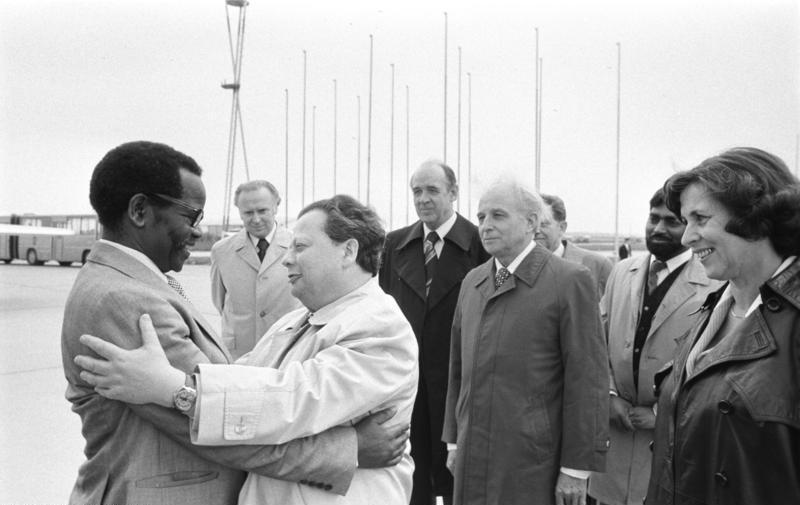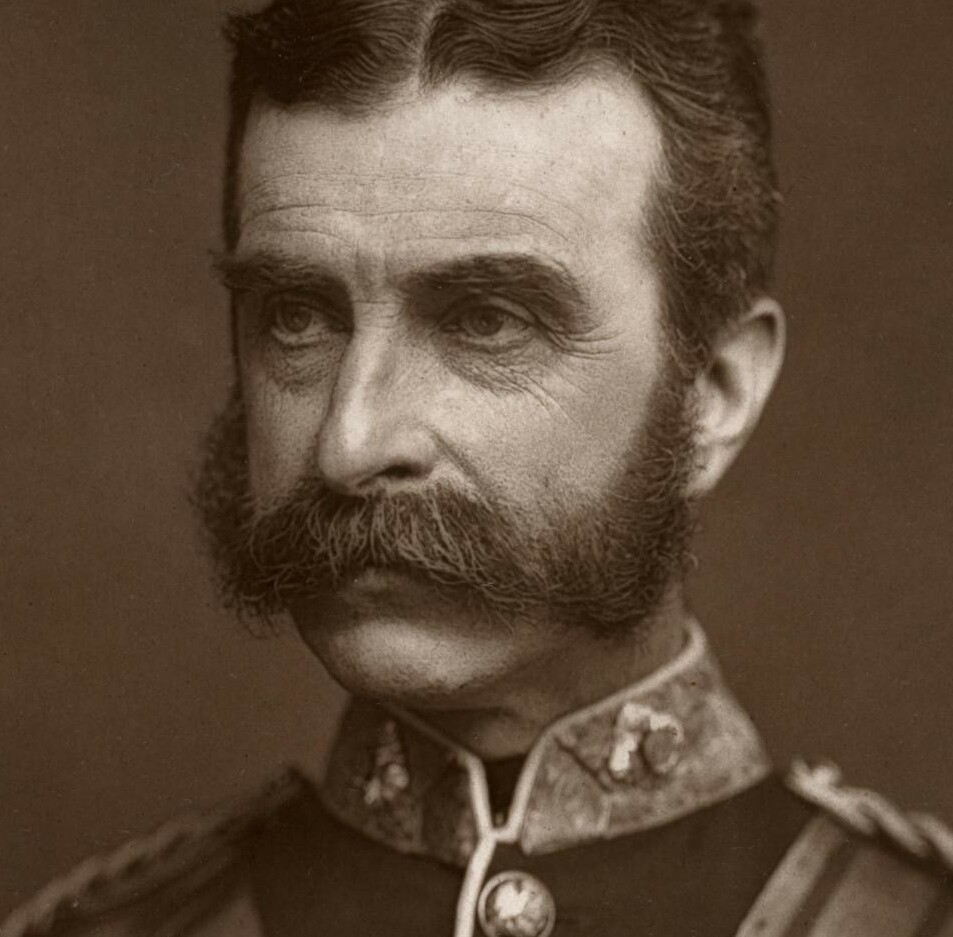|
Congress Of South African Students
The Congress of South African Students (COSAS) is an anti-apartheid Student Organisation established in 1979 in the wake of the June 16 Soweto Uprisings in 1976 in South Africa. Background COSAS was formed in June 1979 after the South African Students' Movement was banned in 1977. It set out to organise black students at secondary, night, technical and teacher training schools as well as correspondence colleges. The COSAS was formed from exile by President Oliver Tambo and COSAS's first president was Ephraim Mogale. In its first two years COSAS took up two commemorative campaigns that authorities saw as African National Congress-supporting; the 1979 hanging of uMkhonto weSizwe (MK) guerrilla Solomon Mahlangu and the centenary of the Zulu victory over British troops at Isandhlwana. In 1982, COSAS adopted the theme; ''Student-worker action'' and promoted the formation of youth congresses to serve the interests of young workers and unemployed youth. The organization provided essen ... [...More Info...] [...Related Items...] OR: [Wikipedia] [Google] [Baidu] |
South Africa
South Africa, officially the Republic of South Africa (RSA), is the southernmost country in Africa. It is bounded to the south by of coastline that stretch along the South Atlantic and Indian Oceans; to the north by the neighbouring countries of Namibia, Botswana, and Zimbabwe; and to the east and northeast by Mozambique and Eswatini. It also completely enclaves the country Lesotho. It is the southernmost country on the mainland of the Old World, and the second-most populous country located entirely south of the equator, after Tanzania. South Africa is a biodiversity hotspot, with unique biomes, plant and animal life. With over 60 million people, the country is the world's 24th-most populous nation and covers an area of . South Africa has three capital cities, with the executive, judicial and legislative branches of government based in Pretoria, Bloemfontein, and Cape Town respectively. The largest city is Johannesburg. About 80% of the population are Black South Afri ... [...More Info...] [...Related Items...] OR: [Wikipedia] [Google] [Baidu] |
South African Students' Movement
The South African Students' Movement (SASM) was an anti-apartheid political organisation of South African school students, best known for its role in the 1976 Soweto uprising. By 1976 it was strongly identified with the Black Consciousness Movement. It was banned by the apartheid government in October 1977 as part of the repressive state response to the uprising. SASM was founded in 1972 in the Transvaal and was most active in Soweto high schools. According to academic Nozipho Diseko, its precursor was the African Students Movement (ASM), a forum founded in Soweto in 1968. On Diseko's account, ASM's leaders, in consultation with leaders of the Black Consciousness South African Students' Organisation The South African Students' Organisation (SASO) was a body of black South African university students who resisted apartheid through non-violent political action. The organisation was formed in 1969 under the leadership of Steve Biko and Barney P ... (SASO), decided in 1972 to ... [...More Info...] [...Related Items...] OR: [Wikipedia] [Google] [Baidu] |
Oliver Tambo
Oliver Reginald Kaizana Tambo (27 October 191724 April 1993) was a South African anti-apartheid politician and revolutionary who served as President of the African National Congress (ANC) from 1967 to 1991. Biography Higher education Oliver Tambo was born on 27 October 1917 in the village of Nkantolo in Bizana; eastern Pondoland in what is now the Eastern Cape. The village Tambo was born in was made up mostly of farmers. His father, Mzimeni Tambo, was the son of a farmer and an assistant salesperson at a local trading store. Mzimeni had four wives and ten children, all of whom were literate. Oliver's mother, Mzimeni's third wife, was called Julia. Tambo graduated in 1938 as one of the top students. After this, Tambo was admitted to the University of Fort Hare but in 1940 he, along with several others including Nelson Mandela, was expelled for participating in a student strike. In 1942, Tambo returned to his former high school in Johannesburg to teach science and math ... [...More Info...] [...Related Items...] OR: [Wikipedia] [Google] [Baidu] |
Ephraim Mogale
Ephraim Phumuga Mogale (6 February 1959 – 2003) was a South African politician and former anti-apartheid activist. The inaugural president of the Congress of South African Students (COSAS), he was an underground operative for Umkhonto we Sizwe (MK) in the Northern Transvaal and was imprisoned on Robben Island from 1980 to 1985. After the end of apartheid, he represented the African National Congress (ANC) in the National Assembly and Mpumalanga Provincial Legislature. Early life and activism Mogale, a Pedi speaker, was born on 6 February 1959. In the 1970s, he joined the outlawed ANC and, after receiving training, returned to his hometown of Moutse in the former Northern Transvaal, where he and other members of the ANC underground sought to promote the anti-apartheid youth movement by organising youth clubs and political education forums, producing pamphlets, and recruiting youths for training at MK camps abroad. In 1979, Mogale was elected as COSAS's inaugural president ... [...More Info...] [...Related Items...] OR: [Wikipedia] [Google] [Baidu] |
Solomon Mahlangu
Solomon Kalushi Mahlangu (10 July 1956 – 6 April 1979) was a South African freedom fighter, struggle activist and operative of the African National Congress (ANC) militant wing, Umkhonto weSizwe, Umkhonto we Sizwe (MK). He was convicted of murder and hanged in 1979. Early years Mahlangu was born in Pretoria on 10 July 1956, the second son of Martha Mahlangu. His father left in 1962 and as a result he was raised by his mother, a domestic worker. He attended Mamelodi High School up to Standard 8 (his tenth year of school), but his education was interrupted in 1976 by the riots of the Soweto uprising that resulted in school closures. Military training In 1976 Mahlangu fled to Mozambique and spent six months in a refugee camp near Xai Xai. From there he was taken to an African National Congress (ANC) training camp called "Engineering", in Angola. There and at Funda Camp he received training in sabotage, military combat, scouting and politics. He, George 'Lucky' Mahlangu and Mondy ... [...More Info...] [...Related Items...] OR: [Wikipedia] [Google] [Baidu] |
Battle Of Isandlwana
The Battle of Isandlwana (alternative spelling: Isandhlwana) on 22 January 1879 was the first major encounter in the Anglo-Zulu War between the British Empire and the Zulu Kingdom. Eleven days after the British commenced their invasion of Zululand in Southern Africa, a Zulu force of some 20,000 warriors attacked a portion of the British main column consisting of about 1,800 British, colonial and native troops with approximately 350 civilians. The Zulus were equipped mainly with the traditional assegai iron spears and cow-hide shields, but also had a number of muskets and antiquated rifles.Smith-Dorrien, Chapter 1B "It was a marvellous sight, line upon line of men in slightly extended order, one behind the other, firing as they came along, for ''a few of them had firearms'', bearing all before them." eyewitness account, emphasis added The British and colonial troops were armed with the modern Martini–Henry breechloading rifle and two 7-pounder mountain guns deployed as field ... [...More Info...] [...Related Items...] OR: [Wikipedia] [Google] [Baidu] |
United Democratic Front (South Africa)
The United Democratic Front (UDF) was a South African popular front that existed from 1983 to 1991. The UDF comprised more than 400 public organizations including trade unions, students' unions, women's and parachurch organizations. The UDF's goal was to establish a "non-racial, united South Africa in which segregation is abolished and in which society is freed from institutional and systematic racism." Its slogan was "UDF Unites, Apartheid Divides." The Front was established in 1983 to oppose the introduction of the Tricameral Parliament by the white-dominated National Party government, and dissolved in 1991 during the early stages of the transition to democracy. Background Involvement in trade unions, beginning in Durban in 1973, helped create a strong, democratic political culture for black people in South Africa. Mass urban protest could also be traced to the student upsurge in Soweto in 1976. 1982 brought the effects of a world economic crisis to South Africa, and th ... [...More Info...] [...Related Items...] OR: [Wikipedia] [Google] [Baidu] |
Matthew Goniwe
Matthew Goniwe (27 December 1947 – 27 June 1985) was a South African apartheid, anti-apartheid activist and one of The Cradock Four murdered by the South African police in 1985. Early years Goniwe was the youngest of eight children. His parents, David and Elizabeth Goniwe, were farm labourers and lived in the Emaqgubeni section of the old Cradock, Eastern Cape township. His family later moved to Lingelihle Township in 1962 as Emaqgumeni was demolished through the Group Areas Act. Education Goniwe attended St James' Primary School and Sam Xhallie Secondary School, where he obtained his Junior Certificate. He obtained a teachers' diploma from Fort Hare University and returned to Sam Xhallie School to teach mathematics and science. In 1958, he joined the African National Congress and in 1960, while in the process of completing his primary school, he joined the local communist party. He attended underground political classes of the ANC and the South African Communist Party. He was ... [...More Info...] [...Related Items...] OR: [Wikipedia] [Google] [Baidu] |
Anti-Apartheid Movement
The Anti-Apartheid Movement (AAM), was a British organisation that was at the centre of the international movement opposing the South African apartheid system and supporting South Africa's non-White population who were persecuted by the policies of apartheid."The Anti-Apartheid Movement, Britain and South Africa: Anti-Apartheid Protest vs Real Politik" , Arianna Lisson, PhD Dissertation, 15 September 2000. The AAM changed its name to ACTSA: Action for Southern Africa in 1994, when South Africa achieved majority rule through free and fair elections, in which ... [...More Info...] [...Related Items...] OR: [Wikipedia] [Google] [Baidu] |
Apartheid In South Africa
Apartheid (, especially South African English: , ; , "aparthood") was a system of institutionalised racial segregation that existed in South Africa and South West Africa (now Namibia) from 1948 to the early 1990s. Apartheid was characterised by an authoritarian political culture based on ''baasskap'' (boss-hood or boss-ship), which ensured that South Africa was dominated politically, socially, and economically by the nation's minority white population. According to this system of social stratification, white citizens had the highest status, followed by Indians and Coloureds, then black Africans. The economic legacy and social effects of apartheid continue to the present day. Broadly speaking, apartheid was delineated into ''petty apartheid'', which entailed the segregation of public facilities and social events, and ''grand apartheid'', which dictated housing and employment opportunities by race. The first apartheid law was the Prohibition of Mixed Marriages A ... [...More Info...] [...Related Items...] OR: [Wikipedia] [Google] [Baidu] |
Organisations Based In Johannesburg
An organization or organisation (Commonwealth English; see spelling differences), is an entity—such as a company, an institution Institutions are humanly devised structures of rules and norms that shape and constrain individual behavior. All definitions of institutions generally entail that there is a level of persistence and continuity. Laws, rules, social conventions a ..., or an Voluntary association, association—comprising one or more person, people and having a particular purpose. The word is derived from the Greek word ''organon'', which means tool or instrument, musical instrument, and Organ (anatomy), organ. Types There are a variety of legal types of organizations, including corporations, governments, non-governmental organizations, political organizations, international organizations, armed forces, charitable organization, charities, not-for-profit corporations, partnerships, cooperatives, and Types of educational institutions, educational institutions, e ... [...More Info...] [...Related Items...] OR: [Wikipedia] [Google] [Baidu] |



